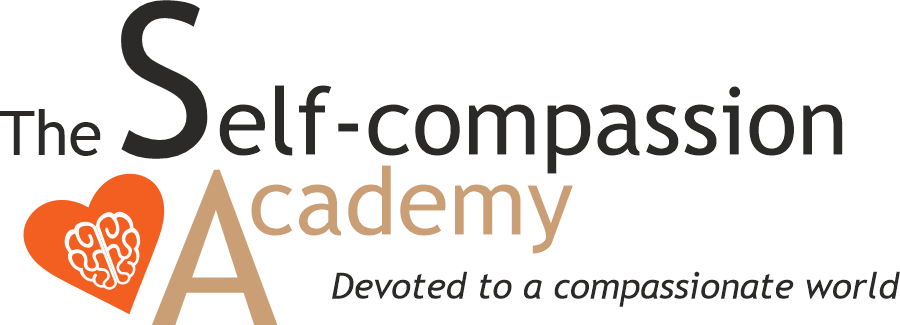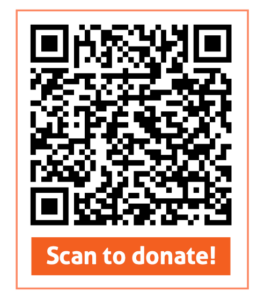What is self-compassion?
For many people, the inner critic is the loudest voice in their heads. What if that voice could be met with kindness instead of judgment?
What is self-compassion?
For many people, the inner critic is the loudest voice in their heads. What if that voice could be met with kindness instead of judgment?
Lower your inner critic
Self-compassion means showing up for yourself with kindness, especially when things get tough. It’s about recognizing you’re human, not perfect, and offering support instead of self-criticism when you struggle or fall short.
Self-compassion isn’t weakness, or lazy. It’s a fierce way to face challenges and move forward. Not by pushing harder, but by treating yourself like someone worth caring for. Because you are.
The goal isn’t to eliminate failure or imperfection but to stop blaming ourselves when it happens. Because science shows: self-compassion is associated with greater resilience, emotional wellbeing, and even healthier habits.
Evidence-based practice
Self-compassion has been researched by psychologist and leading expert Kristin Neff. Together with psychologist and Harvard teacher Chris Germer, she developed scientifically proven and practical exercises to cultivate self-compassion.
Studies have shown that self-compassion has an overwhelmingly positive impact on well-being and personal growth. It boosts positivity, feelings of competence, and vitality, but also lowers stress, negative thoughts, and feelings of insecurity, to name a few.
Self-compassion is a skill you can learn. With practice, kind self-talk becomes second nature. Not overnight, but over time. And it’s so worth it.
The 3 elements of self-compassion, as defined by Kristin Neff
- Self-compassion starts with self-kindness; treating yourself with the same care and understanding you'd offer a good friend.
- Self-compassion involves recognizing that suffering and personal inadequacy is part of the shared human experience.
- Mindfulness helps regulate emotions and reduce stress, helping you to respond to difficulties with greater self-awareness
What are the proven benefits of self-compassion?
Self-compassion strengthens mental well-being
Scientific studies have shown that:
- It increases life satisfaction
- It reduces stress and anxiety
- It boosts happiness and vitality
- It decreases depressive thoughts
- It fosters a more positive state of mind
- It supports a stable sense of self-worth
- It reduces concerns about body image
- It encourages a more positive outlook on life
- It makes you more curious, hopeful, and grateful
Self-compassion powers personal growth
- It fosters greater autonomy
- It reduces social comparison
- It increases open-mindedness
- It reduces feelings of insecurity
- It boosts feelings of competence
- It motivates you to perform better
- It lowers self-rumination and anger
- It enhances your ability to cope with stress
- It decreases dependence on others’ approval
- It helps you become a more authentic person
- It shifts your focus to what is going right, alongside what is going wrong
Test your level of self-compassion
Take Dr. Kristin Neff’s self-compassion test and discover what you need →
How to practice self-compassion?
Self-compassion is a skill you can develop through practice. One of the things you can start with, is taking a moment and asking yourself “what do I need right now?”.
Tune into what’s going on inside. What emotions are you feeling? What thoughts are running through your mind? Can you offer yourself some understanding?
Can you then recognize what you truly need? Do you need self-compassion and acceptance for the situation? Or do you perhaps need a gentle push in the right direction?
Your guide to a kinder inner voice
Practical wisdom and science-backed insights on nurturing a more compassionate relationship with yourself, others, and the world around you.
Evidence-based MSC programs for inner strength
Build inner strength with our self-compassion courses
Our academy offers mindful self-compassion courses and teacher trainings based on the scientific work of Kristin Neff and Christopher Germer.
Our courses and workshops help you to learn to cultivate kindness, acceptance, and connection towards yourself.
Through various exercises (such as meditation, visualization, reflection, and writing practices), you’ll learn how you can apply these qualities to your own thoughts, emotions, feelings, and experiences.
What is Mindful Self-Compassion?
Mindful Self-Compassion (MSC) is a research-backed approach that combines mindfulness and self-compassion to strengthen emotional well-being and resilience.
We have been teaching MSC programs and teacher training since 2014. As an official partner, we keep up with the international standards of the MSC Program, as created by Kristin Neff and Chris Germer.
Frequently asked questions
Mindful Self-Compassion is a training program that is based on scientific research. The program is accessible to everyone and emphasizes the practice of self-compassion, that is rooted in mindfulness, self-kindness and common humanity. MSC equips you with the skills and exercises to help you respond to challenging situations with kindness and care and strengthen emotional well-being and resilience.
It’s important to note that MSC is not considered psychotherapy nor is it a retreat in the traditional sense. The program is designed to help you tap into your inner strength and learn to cope with difficulties, rather than the difficulties themselves being the topic of the conversation.
The Mindful Self-Compassion (MSC) program is open to everyone. Studies have shown that self-compassion can improve emotional and physical resilience and may act as a preventative measure. The program helps you learn to love and care for yourself, especially when we need it most.
It’s important to note that this training is not suitable for individuals who are currently mentally unwell or under a lot of emotional stress as the intensive format of the training can be emotionally demanding.
Prior experience with mindfulness and meditation is not necessary. However, participants should be comfortable exploring their inner experiences and feelings with their eyes closed.
The Mindful Self-Compassion (MSC) program was developed in 2010 by two innovative psychologists, Kristin Neff, PhD, and Christopher Germer, PhD. The training is offered worldwide. The effectiveness of the training has been extensively researched and provides a sound scientific basis for the training.
MSC is a compassion training program designed to help participants experience self-compassion. The course include tools and practices that can be easily integrated into everyday life, such as guided meditations, reflection exercises, writing prompts, and sharing experiences in groups.
Typically, the MSC program is offered in an 8-week format. You can also join shorter workshops as an introduction to self-compassion. See all our courses.
Great to hear you want to become a MSC teacher. The foundation for teaching MSC is to embody the qualities of mindfulness and self-compassion and to have an ongoing, daily practice. In our Teacher Training Program, this is exactly what you’ll learn. In six days, you’ll learn to guide meditations, exercises, and teachings with confidence. Read more about our teacher training.
Join a MSC course
Find your inner strength through self-compassion with one of our (semi) intensive courses.
Become a MSC Teacher
Learn the essentials of becoming a mindful self-compassion teacher in just 6 days.


